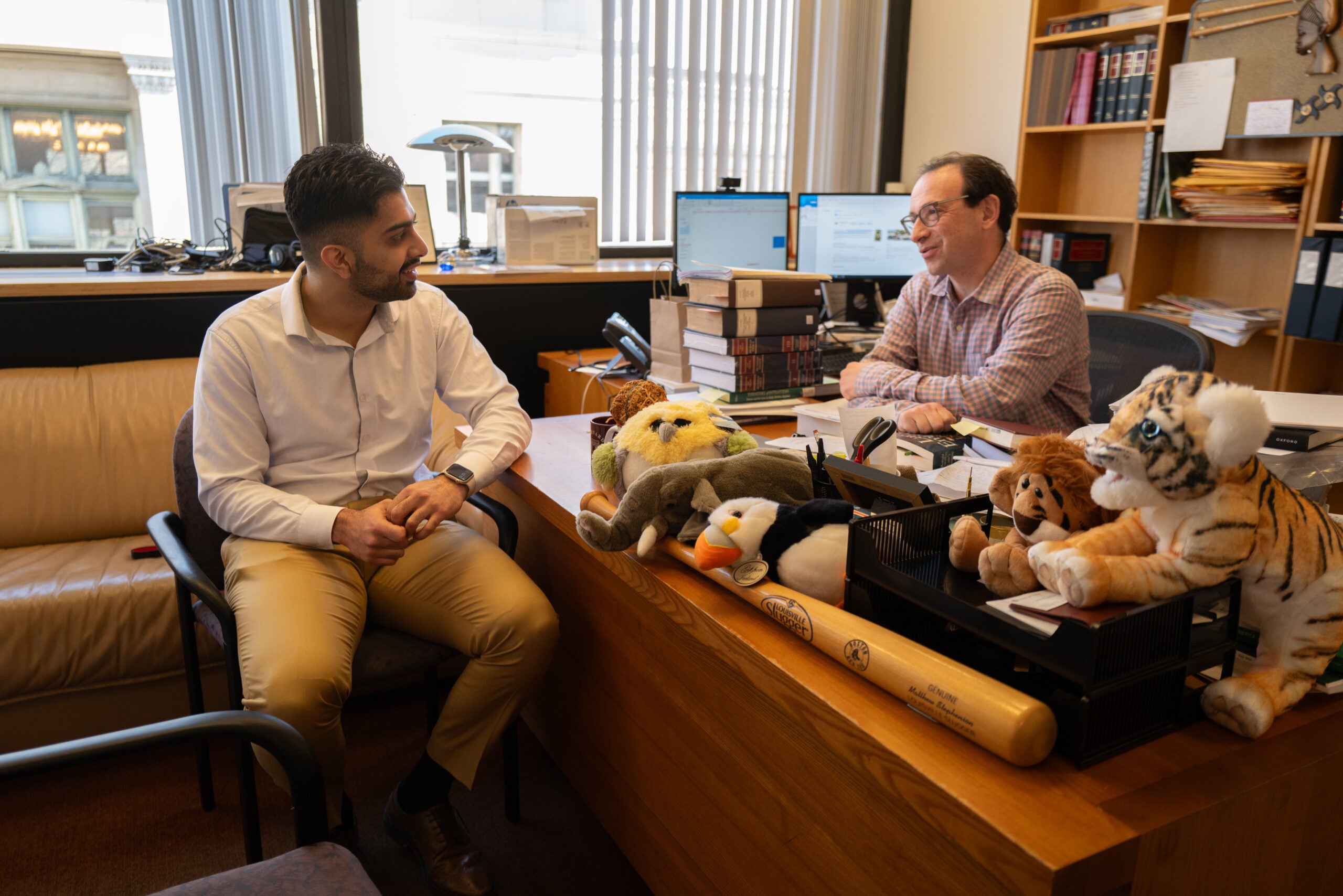By Hussain Awan ’25
I came to Harvard Law School with a background in international development from my undergraduate years, excited to work on the most pressing issues facing the developing world. In particular, I was interested in anticorruption: studying the many deleterious effects of graft in developing countries had deepened my understanding of the task at hand, but, more fundamentally, I was inspired by my upbringing. I had grown up hearing my parents––first-generation immigrants––talk of their personal experiences with systemic corruption back home and how the inability of anticorruption authorities to hold politicians accountable had chilled even their desire to participate in democracy. Their disillusionment with what they saw was a big part of why they decided to pack their bags and leave the comforts of home for a new country half the world away.
Discovering that Professor Matthew Stephenson, who was luckily my 1L Legislation and Regulation professor, also ran the Global Anticorruption Blog (“GAB”) at Harvard Law School was a pivotal moment in my law school journey. GAB is devoted to promoting the analysis and discussion of the problem of corruption, both here in the United States and in countries around the world. Professor Stephenson runs GAB in conjunction with a two-credit “Global Anticorruption Lab” course that he offers to students interested in writing for the blog. I jumped at the opportunity, submitted my application, and was thrilled to be admitted.
My experience over two semesters of 2L as a writer for GAB has been highly rewarding. The Lab’s collaborative environment has been a highlight of this time. Each Wednesday evening, I spend two hours workshopping my pieces with the many brilliant peers enrolled with me in the class, and in turn, get the chance to review and learn about their work. I’ve particularly enjoyed working with other students who’ve already had impressive careers in the anticorruption space and with LLMs who bring international perspectives on the fight against corruption in their own countries (often in the developing world). For instance, the chance to receive feedback from Francis Ben Kaifala ‘24, an LLM on sabbatical from his role as the head of the Anti-Corruption Commission of Sierra Leone, and in turn the opportunity to review his work, underscore to me the incredible learning opportunities only available to Harvard Law clinical and seminar students. To top it all, each of my essays has undergone Professor Stephenson’s meticulous line editing before making it onto the blog. Learning from him has been a great boost to my own writing ability.

Throughout my time in the Lab, I’ve tackled a range of topics that span the complex landscape of global anticorruption efforts. My posts have covered anticorruption drives against political figures in Pakistan, highlighting how such efforts can damage democracy and how they are unlikely to diminish electability due to voter apathy and perceptions of politicized allegations. I’ve written on failed reforms in sports corruption, particularly within FIFA, pointing out the need for greater transparency and continued vigilance in the post-Sepp Blatter era.
My upcoming articles this semester will explore issues such as the enforcement of the Foreign Corrupt Practices Act (FCPA), Canada’s tepid approach to foreign anti-bribery enforcement, and the potential for corruption in the enforcement of international sanctions and trade regulations. I also plan on using what I’ve learned about international anticorruption case studies to write more about domestic issues here in the United States.
These pieces aim to contribute further to the discussion on effective anticorruption measures, drawing from specific cases and broader enforcement trends. Knowing that my work is read by practitioners who follow the blog and that it contributes to the broader dialogue on anticorruption has been incredibly fulfilling––and underscores to me the importance of our small research projects in the Lab when it comes to informing practical approaches to challenging corruption and advancing integrity globally.
As I look forward to my continued involvement with the Global Anticorruption Lab in my 3L year, I am grateful for the mentorship of Professor Stephenson and the community of scholars and practitioners I’ve joined. This experience has not only honed my research and writing skills but also solidified my commitment to anticorruption work. For anyone interested in making a difference in this critical area, I cannot recommend the Global Anticorruption Lab enough. It’s more than an academic endeavor; it’s a chance to contribute to a global movement towards transparency, accountability, and justice.
Filed in: Clinical Student Voices
Contact Office of Clinical and Pro Bono Programs
Website:
hls.harvard.edu/clinics
Email:
clinical@law.harvard.edu
